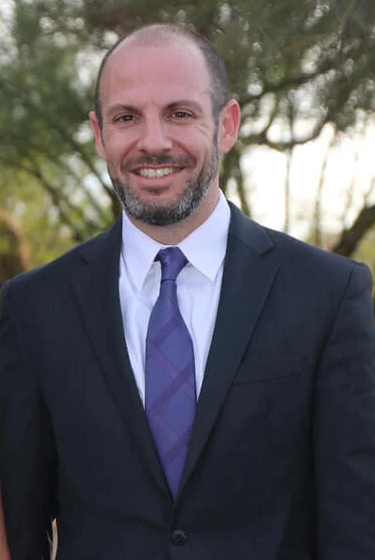CASE PROFILE:
African Torture Survivor Granted Asylum
To protect the client’s confidentiality and safety of family members back home, we do not reveal his real name.

As “Isaac” ran through the darkness
with violent, anti-government separatists
in hot pursuit, he stumbled upon a group
of soldiers, fell to his knees, and pleaded
for protection.
They responded by viciously beating him with their rifle butts and taking him to a room where they plugged electric cables into a socket and shocked him in his neck, limbs, and genitals until he passed out. He awoke in a hot, dark cell, pressed against countless other prisoners.
Light filtered in when guards briefly opened an iron door, and he saw that everyone was as bruised and bloodied as he. Like him, they were accused of being members of a militant separatist group – the same that Isaac had fled.
Prison life included frequent beatings, a tiny, daily ration of bread, dirty water served in a cup that everyone drank from, and an open bucket for a toilet shared by all cellmates – these were the same appalling conditions he’d experienced following his first arrest years earlier while peacefully protesting.
Being granted asylum “felt like a big weight had been taken off … like I had wings and the opportunity to breathe and to fly.”
–“Isaac”
Born into a marginalized minority in western Africa and denied fair access to education, the courts, and employment, Isaac had joined a citizens’ march against discrimination. Soldiers had opened fire, killing about 100 protestors. Many, like Isaac, had been arrested. He had been released after four brutal days and warned that he would be executed if he protested again.
Since then, he had lived in seclusion and avoided political involvement. He had met a woman and fathered a daughter. Meanwhile, a militant separatist group grew powerful in the region. They forcibly recruited boys and young men to fight, and often killed those who resisted. The night they came to Isaac’s door, he ran, only to be arrested again.

This time after his arrest, he noticed that on some days soldiers would come to his cell and escort a few people out. The prisoners never returned, and Isaac thought they had been released. In fact, they had all been executed, according to a sympathetic soldier who eventually enabled Isaac to escape. The soldier told Isaac to leave the country if he wanted to survive.
Family friends helped plan his escape to South America. He decided to come to Arizona to join a sibling who had been granted asylum, and because English is his first language.
“Going to the U.S. was not my original plan,” he says, “but I was not safe or able to communicate in the countries I traveled through, and it became clear that the U.S. would be the only safe place for me.”
He was detained by U.S. border agents, given a screening interview, and scheduled for a hearing before an Immigration Judge.
He had no money to hire an attorney to help him apply for asylum. University of Arizona law students under the direction of Immigration Law Clinic Director, Lynn Marcus drafted and filed his asylum application and supporting declaration.
“Coming to the U.S. with no money and having the Asylum Program say, don’t worry, we’re going to help you with the paperwork and financially, that was amazing.”
—“Isaac”
Next, the Asylum Program of Arizona (APA) contracted with Immigration Attorney, Mo Goldman of Goldman and Goldman, PC, to represent Isaac in court at a low cost. APA paid the legal fees.
“Coming to the U.S. with no money and having the Asylum Program say, don’t worry, we’re going to help you with the paperwork and financially, that was just amazing,” says Isaac.
He was granted asylum in November 2020. “It felt like a big weight had been taken off … like I had wings and the opportunity to breathe and to fly,” he says. “It was an amazing moment.”
He now works for a nonprofit agency that serves people with disabilities. He plans to marry his partner and bring her and their child to the U.S. after he receives Lawful Permanent Resident status.
Asylum Granted!
Eleven protection seekers (in five cases) assisted by APA have been granted asylum in 2022. They are:
- A Nicaraguan family of three. The man was severely injured by police during a political protest. He hid for two years while police searched for him. Given the government’s oppression of political opponents, he feared for his life, so the family fled to the U.S.
- A Mexican mother who survived severe domestic violence (beatings, rape at gunpoint) for nearly a decade. Police ignored her complaints and sent her to therapy. She relocated in Mexico, but her abuser pursued her, so she fled to the U.S.
- A 21-year-old Honduran woman diagnosed with PTSD and depression who was repeatedly raped, stalked, and harassed by her father, a wealthy businessman with deep political connections, since the age of nine. She hopes to be reunited with her two children who she left with her mother before fleeing Honduras.
- A Mexican mother who endured extreme domestic violence resulting in permanent injury by her partner who has deep military ties. She relocated in Mexico but left after a drug cartel tried to forcibly recruit her son.
- A Cameroonian man beaten and tortured forparticipating in protests.
APA Board Attorneys Render Critical Services
Free case screenings, advice, information, and court filings have been provided by attorneys on APA’s board of directors to about 30 asylum seekers in 2022. The following court filings by a board attorney prevented the clients’ undue deportation:
- A change of venue motion averted deportation for a Colombian who could not travel to her court hearing on the east coast due to serious medical problems.
- An asylum application for an unaccompanied Honduran minor has given a non-APA attorney time to seek a special immigrant visa for abused, abandoned, or neglected children – possibly a surer way than asylum of gaining protection for the boy.
- A pro se appeal in Federal Court for a Guatemalan asylum seeker whom the Board of Immigration Appeals ordered removed despite the government’s prior agreement to allow for adjudication of a crime victim’s visa application.



